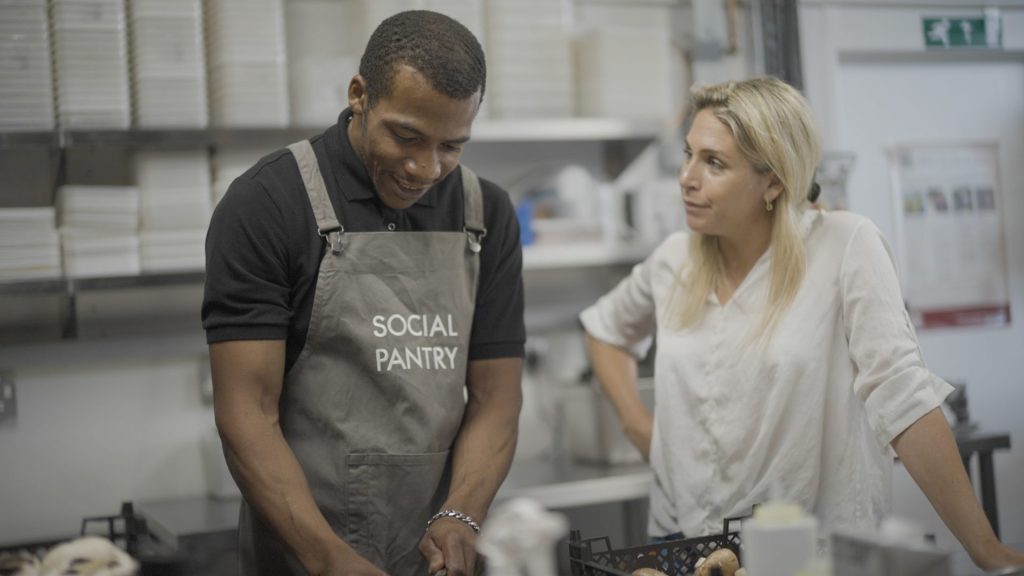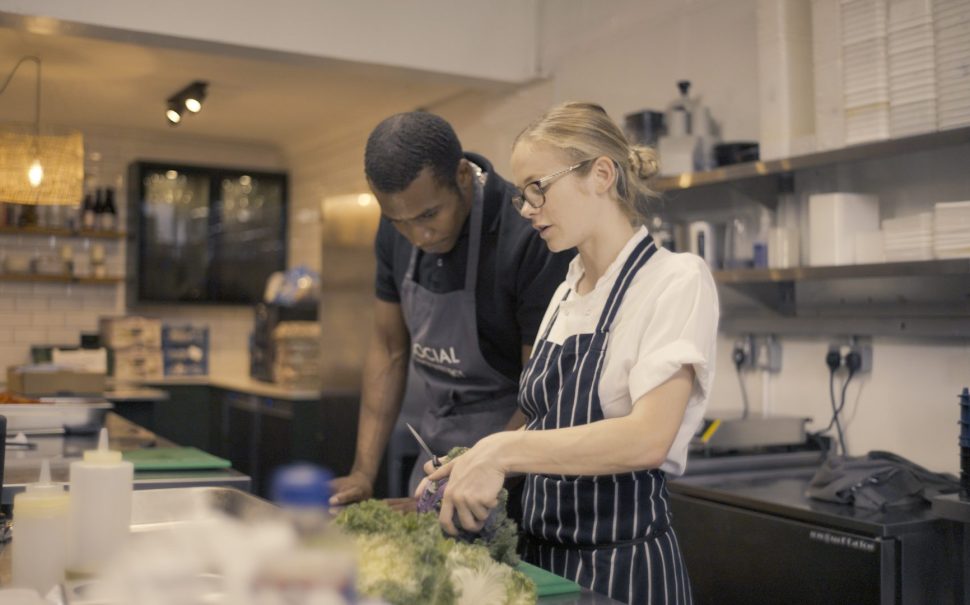A luxury catering company and a Feltham prison are working together to prepare inmates for life outside of prison, lowering reoffending statistics through their outreach program.
Over the Summer of 2023, HMP/YOI Feltham (Feltham Young Offenders Institution) opened their cafe behind bars, where the food is prepared by young inmates and served to the prison staff.
London-based catering company Social Pantry is founded by Alex Head, who has hired prison-leavers since 2015, now runs the cafe behind bars, Lock Mess, in partnership with HMP/YOI Feltham.
Social Pantry is a sustainable and eco-conscious catering company and they also provide training and employment opportunities to those serving time in the employment of prison leavers.
Head said: “It’s great to have been given this opportunity within Feltham.
“Hopefully we can change some lives, give some men a second chance on the outside and in-turn reduce reoffending”
Head is also a part of the Employment Advisory board for HMP Wandsworth.
The cafe behind bars, provides three-month training programmes for inmates to develop kitchen, front-of-house and hospitality skills.
Lock Mess at HMP/YOI is headed up by Social Pantry Chef de Partie Daniel Nichols, 27, who works alongside four other young offenders, where they prepare and make food and coffee to serve prison staff.

The outreach program prepares current inmates for life outside of prison where they are taught to work in a kitchen team and in that process they hone in on their culinary techniques for food preparation and service.
Moreover, the young inmates are all working towards NVQ (National Vocational Qualifications), which prepares inmates with key qualifications and skills that they will need to secure employment outside of prison.
Upon release, inmates are offered employment at Social Pantry.
Chef de Partie at the Lock Mess, Daniel Nichols says: “It feels very rewarding to be able to pursue being a chef and also helping people by giving them skills to prepare them for life outside of prison.
Regardless of the Rehabilitation of Offenders Act 1974, a criminal record causes a significant impact on a former inmate’s ability to find jobs upon leaving prison.
Hence, establishments like Social Pantry, that help inmates with their training and employment opportunities, make a positive impact on lowering reoffending rates by providing training within prison and employment opportunities and support outside of prison.
Studies prove that providing rehabilitation and retribution schemes for prisoners for adjusting to life outside of prison, prepares them for re-adjusting back into society and lowers rates of re-offending.
Tackling inequality in the work force can help in tackling crime, and in this case tackling the inequality of job prospects that prison-leavers face after their release can hep reduce re-offending rates.
According to the Ministry of Justice, the economic and social cost of reoffending in England and Wales is approximately £18 billion per year.
This in itself is a huge cost within the government with taxpayer money, and can be reduced if ex-prisoners have jobs that they can look forward to engaging in, instead of turning towards crime to sustain themselves.

An ex-inmate from a different prison, Ruben, who was mentored by Alex, joined Social Pantry shortly after his release and has now been with the catering company for over 8 years.
On getting a job straight out of prison, Ruben said: “I think it’s very important to try and get yourself into a role of work as soon as possible so that you don’t get led into any other stuff that is out on the roads, on the streets basically.
“It’s really helped me out a lot, I can’t explain it in words of how much it has actually helped me out, to tell the truth.”
According to statistics emerging from this time last year, there has been a rapid progress in boosting employment for prison leavers, with the number of ex-offenders who have been successfully steered into jobs within 6 months, more than doubling from 14% to 30% since April 2021.
Since April 2022, the proportion of prison leavers finding work within six weeks of release has increased from 15% to 19%, with a further 30% in work after 6 months, up from 23%.
According to Nichols, the young inmates he mentors and trains in the kitchen had initially some reservations about preparing and serving food to the prison staff as the cafe only caters to prison officers and staff.
However, Nichols wanted to change their mindset and encourage them to focus on preparing delicious dishes without focusing on the specificity of who they are serving.
In regards to other challenges he would face in the kitchen, Nichols emphasises that all things ultimately work out well in the end.
He said: “It can be challenging sometimes as I have to teach the lads about the kitchen right from the basics, you know like basic knife skills and all may not be immediately apparent to them.
“But it is amazing to see them pick things up and learn and grow together.”
Nichols splits his time working in kitchens between his role at the Social Pantry and Lock Mess and also working at a southern Thai restaurant in Borough Market called Kolae.
The program in partnership with Social Pantry has benefited many former inmates with adjusting their work life once their serving time ended.
Social Pantry has exceeded their own goals where their average employment rate for prison-leavers stay high at 11%.
Social Pantry is hoping to carry along and succeed further with their efforts of helping prison-leavers secure jobs in the upcoming year.





